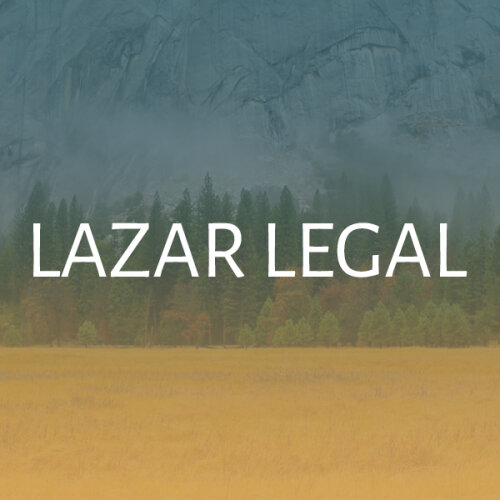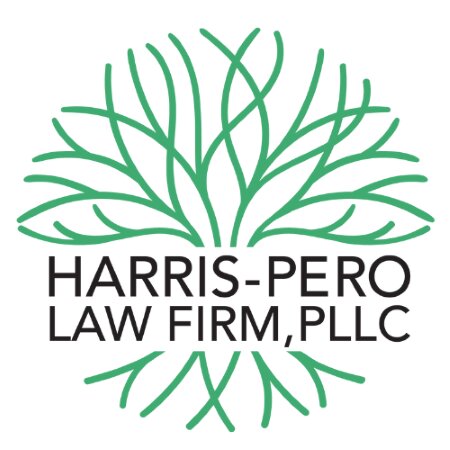Best Office Solutions Lawyers in New York
Share your needs with us, get contacted by law firms.
Free. Takes 2 min.
Or refine your search by selecting a city:
List of the best lawyers in New York, United States
About Office Solutions Law in New York, United States
Office Solutions Law in New York addresses the legal aspects involved when businesses acquire, lease, or share office spaces and related services. This area of law covers traditional office leases, coworking arrangements, virtual office services, and shared workspaces. Legal issues in office solutions often involve contracts, property rights, regulatory compliance, business permits, and landlord-tenant relationships. Whether you are a business owner, a property manager, or a service provider, understanding your rights and obligations is essential for operating smoothly and legally in New York’s dynamic commercial real estate market.
Why You May Need a Lawyer
Many individuals and businesses seek legal advice for office solutions to prevent or resolve disputes and to ensure all agreements comply with state and local regulations. Common reasons to consult a lawyer include:
- Reviewing or negotiating commercial lease agreements to avoid unfavorable terms
- Advice on entering shared or coworking office arrangements
- Resolving disputes with landlords, tenants, or service providers involving office space
- Ensuring proper licensing and permits for operating out of a specific office location
- Clarifying liability for property damage or personal injury in office areas
- Addressing issues concerning building code compliance and accessibility laws
- Advising on virtual office agreements and mail handling services legality
A lawyer can help you understand the implications of your contracts, safeguard your business interests, and represent you in negotiations or court if necessary.
Local Laws Overview
New York State and New York City have comprehensive laws impacting office solutions. Key legal aspects include:
- Commercial Lease Law: Office leases are governed by New York State contract law with additional protections under New York City ordinances. Commercial leases are often less regulated than residential ones, so negotiation is crucial.
- Zoning Laws: Office use must comply with local zoning ordinances, which dictate where certain types of office spaces can operate and under what conditions.
- Code Compliance: Buildings must meet strict code requirements covering fire safety, health, accessibility (ADA compliance), and more.
- Permits and Licenses: Operating a business from an office typically requires a business license, Certificate of Occupancy, and, in some cases, special permits.
- Landlord-Tenant Laws: New York’s Real Property Law and New York City’s Commercial Tenant Harassment Law offer protections relevant to office rental spaces.
- Contract Law: All office solution agreements should be in writing and compliant with New York contract principles.
- Data Privacy Regulations: Virtual office and coworking spaces must adhere to privacy regulations regarding data security and confidentiality.
Frequently Asked Questions
What is considered an office solution in New York?
Office solutions include traditional office leases, shared and coworking spaces, virtual offices, and business centers. These services provide businesses with workspace, administrative support, and meeting facilities.
Do I need a written lease for a shared office space?
Yes, a written agreement is highly recommended for any type of office space arrangement. This helps define responsibilities, costs, and rules, and can prevent misunderstandings or legal disputes.
Are coworking space operators subject to the same landlord-tenant laws as traditional landlords?
Coworking arrangements are typically governed by membership or license agreements rather than traditional leases, but operators still have certain legal obligations regarding safety, privacy, and accessibility.
Can I operate a business from a residentially zoned property in New York?
In most cases, local zoning laws restrict the type and scale of business activities that can occur in residential zones. Check municipal codes and homeowner association rules before setting up an office at home.
Who is responsible for repairs and maintenance in commercial office spaces?
Responsibilities are usually defined in the lease agreement. Tenants often cover minor repairs, while landlords handle structural and major system repairs. Always clarify these terms before signing.
What insurance is needed for office spaces?
Business owners are generally advised to carry general liability insurance and, depending on the situation, property, workers’ compensation, and professional liability coverage. Coworking operators often carry their own policies.
What happens if my landlord is not maintaining the building?
If your office is in disrepair or violates code, you may have legal remedies such as requiring repairs, withholding rent (in limited cases), or terminating the lease. Consult a lawyer before taking any action.
Are there special considerations for virtual offices?
Virtual offices must comply with business registration laws, data privacy rules, and local regulations. Ensure any mail forwarding or handling services comply with state and federal law.
How are security deposits handled in commercial office leases?
New York law allows negotiation of security deposit terms in commercial leases. Deposits are typically held by the landlord and returned at the end of the lease if all terms are met.
Can a landlord evict a commercial tenant without cause?
Most commercial leases specify the grounds for eviction. Typically, eviction can occur for lease violations such as nonpayment of rent or illegal use. However, a landlord cannot evict tenants arbitrarily if the lease is still in effect.
Additional Resources
For those seeking more information or assistance, consider the following resources:
- New York State Attorney General’s Office - Bureau of Real Estate Finance
- New York City Department of Buildings
- New York City Department of Consumer and Worker Protection (DCWP)
- Small Business Services NYC
- New York State Bar Association - Find a Lawyer Service
- Local chambers of commerce and business improvement districts
Next Steps
If you need legal advice or representation regarding office solutions in New York:
- Collect all relevant documents such as leases, service agreements, correspondence, and business licenses.
- Identify your specific questions or concerns, whether related to a dispute, a new office agreement, or compliance issues.
- Consult an attorney experienced in New York office or commercial real estate law to review your situation and provide recommendations.
- Consider mediation or negotiation if a dispute arises before pursuing litigation.
- Stay informed about changes in local laws and regulations that may affect your office arrangements.
By taking these steps, you can protect your business interests and ensure your office operations remain compliant in New York.
Lawzana helps you find the best lawyers and law firms in New York through a curated and pre-screened list of qualified legal professionals. Our platform offers rankings and detailed profiles of attorneys and law firms, allowing you to compare based on practice areas, including Office Solutions, experience, and client feedback.
Each profile includes a description of the firm's areas of practice, client reviews, team members and partners, year of establishment, spoken languages, office locations, contact information, social media presence, and any published articles or resources. Most firms on our platform speak English and are experienced in both local and international legal matters.
Get a quote from top-rated law firms in New York, United States — quickly, securely, and without unnecessary hassle.
Disclaimer:
The information provided on this page is for general informational purposes only and does not constitute legal advice. While we strive to ensure the accuracy and relevance of the content, legal information may change over time, and interpretations of the law can vary. You should always consult with a qualified legal professional for advice specific to your situation.
We disclaim all liability for actions taken or not taken based on the content of this page. If you believe any information is incorrect or outdated, please contact us, and we will review and update it where appropriate.
Browse office solutions law firms by city in New York
Refine your search by selecting a city.














